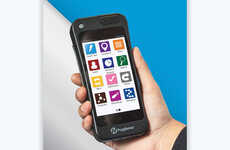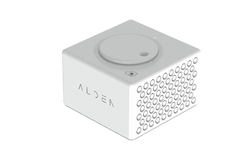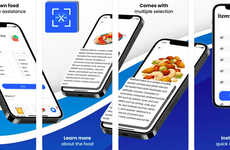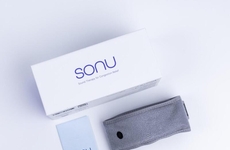
SensoGenic is a Convenient Method for Allergen Detection
References: sensogenic & israel21c.org
Food allergies are of real concern in North America and a vast portion of the population suffers from them, hence, allergen detection tech is a very lucrative category.
Technology enables efficiency and convenience. Being able to determine whether it is safe to eat something on-the-go comes with incredibly positive implications for consumers who suffer from allergies.
SensoGenic is a start-up that is developing a handheld allergen detection device that utilizes nanotechnology "to detect specific allergy-causing proteins at a level of 10 ppm (parts per million)" -- the lowest adverse reaction level.
The biosensor can accurately analyze a food sample and determine whether it contains peanuts, wheat, soy, tree nuts, eggs, milk, fish, and shellfish. Moreover, the allergen detection device is compatible with an application, where users can share recommendations and share their experience at a specific restaurant.
Technology enables efficiency and convenience. Being able to determine whether it is safe to eat something on-the-go comes with incredibly positive implications for consumers who suffer from allergies.
SensoGenic is a start-up that is developing a handheld allergen detection device that utilizes nanotechnology "to detect specific allergy-causing proteins at a level of 10 ppm (parts per million)" -- the lowest adverse reaction level.
The biosensor can accurately analyze a food sample and determine whether it contains peanuts, wheat, soy, tree nuts, eggs, milk, fish, and shellfish. Moreover, the allergen detection device is compatible with an application, where users can share recommendations and share their experience at a specific restaurant.
Trend Themes
1. Portable Allergen-detection Tech - Disruptive innovation opportunity: Develop a portable allergen detection device that can detect specific allergy-causing proteins in food samples, providing convenience and safety for consumers with food allergies.
2. Efficient Allergen Analysis - Disruptive innovation opportunity: Develop advanced nanotechnology-based biosensors that can accurately analyze food samples for the presence of allergens, improving efficiency and reducing the risk of adverse reactions.
3. Allergen-sharing Platforms - Disruptive innovation opportunity: Create online platforms or applications where users can share dining recommendations, allergen-free recipes, and their experiences related to allergen detection, fostering a supportive community for individuals with food allergies.
Industry Implications
1. Food Safety - Disruptive innovation opportunity: Incorporate portable allergen-detection technology into the food safety industry to enhance detection and prevention of allergen contamination in food products.
2. Healthcare - Disruptive innovation opportunity: Integrate allergen-detection technology into healthcare settings to aid in rapid and accurate diagnosis of food allergies, enabling personalized treatment plans for patients.
3. Hospitality & Restaurants - Disruptive innovation opportunity: Implement allergen detection devices and allergen-sharing platforms in restaurants and hospitality establishments to cater to the needs of guests with food allergies, ensuring a safe dining experience.
6.4
Score
Popularity
Activity
Freshness























